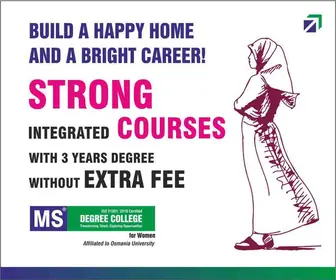
The entire struggle of the Muslims after the Independence has revolved around identity. It has only triggered a reaction and lent a handle to the majoritarian forces who are now keen to see that the Muslim leadership does more of it to inflict bloodier reprisals, says Maqbool A. Siraj, a veteran journalist and writer.
Speaking with Siasat.com Siraj said, from 1986 onwards, “We took up Shah Bano case, banning of books by Salman Rushdie and Taslima Nasreen, triple talaq, Babri Masjid, a holiday for Meeladun Nabi and such other issues. ‘Maulvis’ and politicians from UP and Bihar have taken up these issues as if they are the crux of Muslim existence. In the 1960s and 1970s, politics revolved around the controversy over the minority status of Aligarh Muslim University’s minority character, Urdu and Muslim Personal Law.
He said he believes that the Maulvis can inflame raw passions but cannot activate the creative instincts to tackle contemporary challenges of society. None of these could be protected from convulsion times. Muslims in these states have remained extremely backward, unable to see beyond their limited geography and society. India is much larger and offers greater opportunities. Not all non-Muslims think in partisan manner as the BJP / RSS envision India.
The Muslims must focus on modern education, skilling the traditional hewers of wood and drawers of water, educate and empower women, modernise madrassa curriculum, initiate reforms in the Muslim Personal Law, promoting entrepreneurship, investing in knowledge creation, promotion and preservation and placing the youth in key positions.
Giving examples, he said that Al-Ameen movement in Bangalore/Karnataka has completed almost 55 years in service. Today the city has over 450 English medium schools run and managed by Muslims. Fifty of these are A grade schools where 70% of students and teachers are non-Muslims. They also run about 25-degree colleges, three universities (none of which carries a minority tag), six medical and 13 (maybe more now) engineering colleges, countless teachers’ training, nursing and pharmacy colleges and polytechnics.
Muslims in Tamil Nadu have been even more progressive. “My father was a graduate of Mohammedan College, Madras (circa 1936). This college was set up in 1905. Today it has been rechristened as Quaid-e- Millat (after Muslim League leader Mohammed Ismail) college and is an exclusively girls college. Islamiah College in Vaniyambadi (200 kms west of Chennai) came up in 1919. It is a post-graduate college with 80% students being non-Muslims. Almost every district in Tamil Nadu, Kerala and Karnataka have ample number of Muslim colleges and schools and other institutions such as libraries, hospitals, nursing homes, ambulance services, free kitchens, scholarships endowments etc.
As rightly mentioned by Prof. Moazzam, the Muslims must focus on raising model local institutions rather than launching all-India movements and spreading our resources thinly over a wide swathe of geography. Institutions need local focus. In this context, Nurul Islam Al-Ameen Mission of Kolkata; Vastanvi saheb’s institutions in Akkalkuwa (Maharashtra); TKM institutions (which is now a University in Kottayam); Shaheen Group of Institutions, Bidar, Karnataka (This year 450 students from here cracked NEET exam and were declared eligible for MBBS seats in Government Medical Colleges of Karnataka); work by Sultanul Uloom Education Society in Hyderabad; Colleges and schools set up by former IPS officer in West Bengal Nazrul Islam in Domkal in Murshidabad etc. could be a few models.
Political issues should be put on the back burner for a decade till a new generation with modern vision and skills comes into being. UP and Bihar maulvis who dominate the Delhi’s so-called Muslim leadership do not measure up to the modern challenges. Their own madrassas (rather ancestral properties) are the shining examples of mismanagement they can cause to the larger Ummah.

